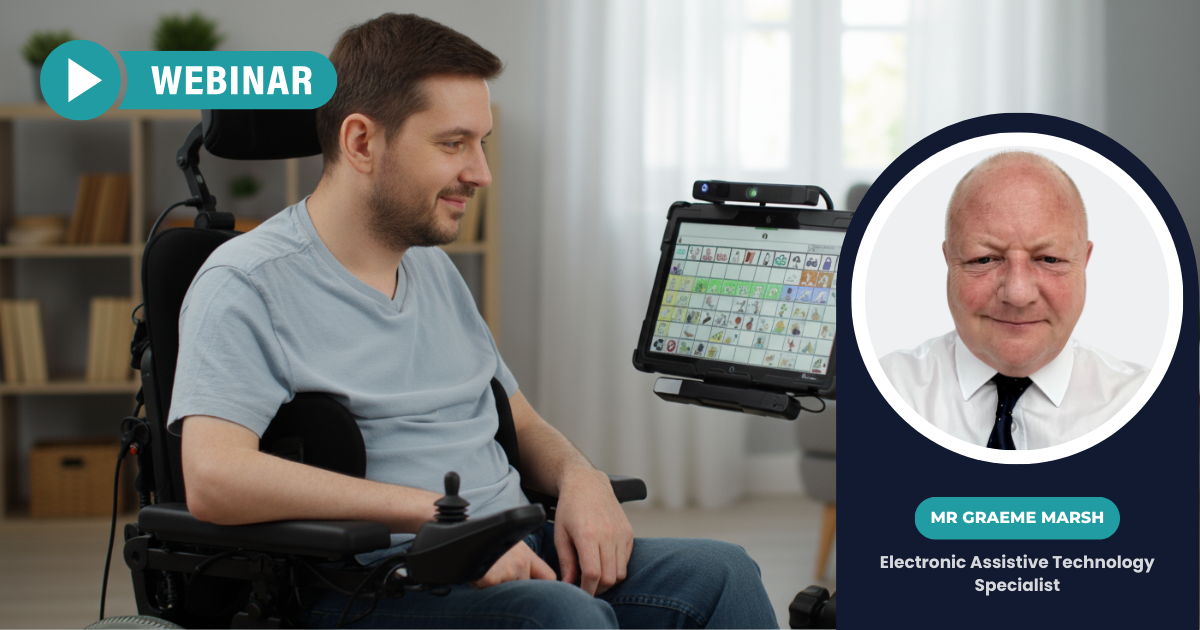NRC Medical Experts invites solicitors and case managers to join an upcoming webinar with Graeme Marsh, Assistive Technology Expert and NRC Medical Expert.
Thursday 23 October | 4PM | Register Now
In serious injury litigation, access to the right assistive technology can have a direct impact on independence, care needs, and long-term costs. Environmental Control Systems (ECS) and related technologies are no longer niche: they are transforming the daily lives of people with catastrophic injuries such as spinal cord injury, brain injury, Guillain-Barré syndrome, and complex neurodisability.
For case managers, this knowledge informs realistic rehabilitation planning and ensures that technology is considered early, avoiding missed opportunities for independence. For solicitors building cases, understanding how these systems work – and the evidence for their effectiveness – is critical.
- Spinal cord injury cases: clients may gain independence with smart wheelchairs, eye-gaze controls, or ECS that enable them to manage security, communication, and home functions. This can significantly reduce care requirements and increase quality of life.
- Traumatic brain injury cases: voice recognition, switch access, or eye-gaze technology can support communication and access to technology, improving social participation and reducing isolation.
- Amputation and neurological conditions: mobile arm supports or adapted controls can reduce the need for constant assistance, shifting the long-term costs of care.
What you will learn
Graeme’s session will provide clear, evidence-based insights into the role of electronic assistive technology in legal and clinical contexts.
Learning objectives:
- Understand what Environmental Control Systems (ECS) are and their role within electronic assistive technology.
- Explore how ECS enables independence, safety, communication, and quality of life for people with complex physical disabilities.
- Review evidence-based benefits of ECS provision, including increased independence, reduced care needs, and improved wellbeing.
- Learn about different access methods: direct access, switch access, voice recognition, and eye-gaze technology.
- Examine real-world case studies demonstrating ECS in practice.
- Gain insight into therapy outcome measures and how service impact is assessed.
- Discover the latest innovations, such as smart wheelchairs, mobile arm supports, and eye-gaze wheelchair driving.
Register now
About the speaker
Graeme Marsh is a highly experienced Assistive Technology Specialist with extensive experiences as a Medical Expert Witness.
His expertise spans Environmental Control Systems, communication aids, and complex mobility solutions, with extensive experience supporting individuals with catastrophic injury.
Who should attend
- Solicitors handling serious injury, catastrophic injury, and clinical negligence cases.
- Case managers supporting clients with complex rehabilitation and independence needs.
This webinar will provide the knowledge needed to understand how assistive technology evidence can strengthen a case, support accurate future costings, and ensure clients access life-changing independence.
Register now
Places are free but limited. Click here to register and secure your place at this important session.

